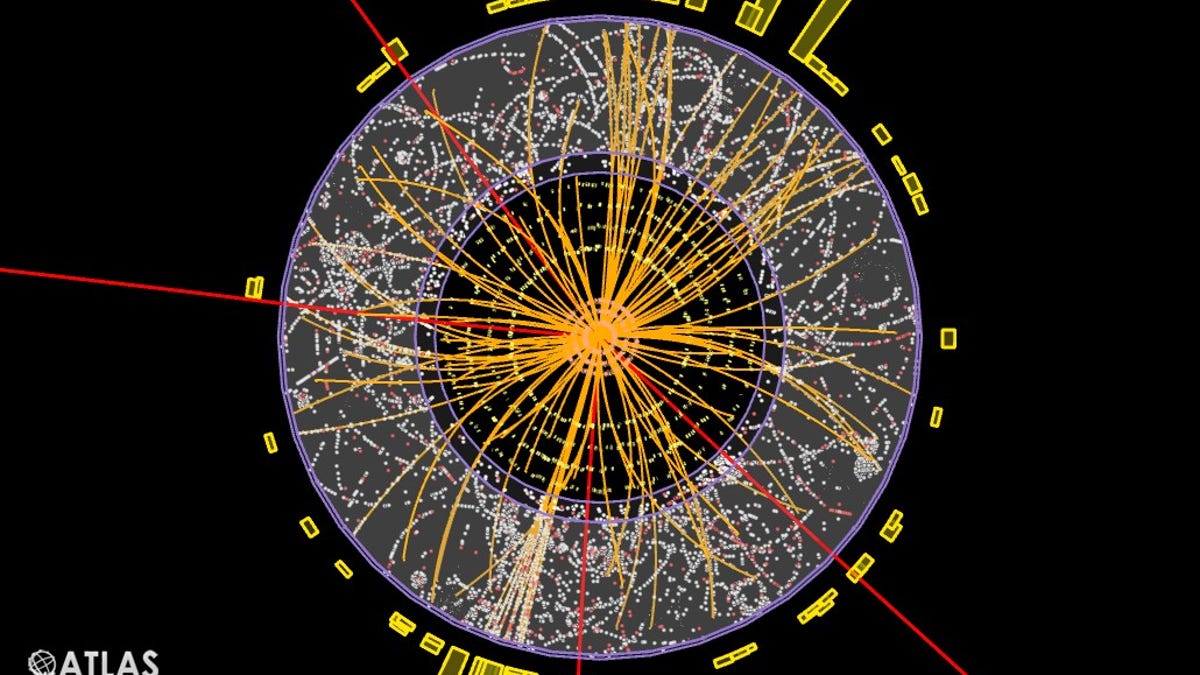Higgs boson revelation set for July 4: Fireworks, or dud?
Physicists in Europe are ready to offer up their latest findings on a mysterious subatomic particle known as the Higgs boson. And the universe may never be the same.

Fireworks. Hot dogs. Beach blankets. Particle physics.
July 4 this year won't be just about Americans celebrating Independence Day and unofficially kicking off the the summer vacation season. It could also bring news of some significance from physicists in Europe who've been in hot pursuit of a mysterious subatomic particle known as the Higgs boson -- and a better glimpse at the nature of the universe.
The big-brain folks at CERN on Wednesday will be holding a seminar at which they plan to provide an update on the Higgs search, divulging the preliminary results of their 2012 data analysis. As it turns out, they acquired more data just between April and June of this year than they did in all of 2011.
"We now have more than double the data we had last year," CERN's director for research and computing, Sergio Bertolucci, said in a statement announcing the upcoming seminar. "That should be enough to see whether the trends we were seeing in the 2011 data are still there, or whether they've gone away. It's a very exciting time."
Last December, researchers said they had found "intriguing hints" of the Higgs boson, the existence of which has been predicted by the Standard Model of particle physics but never -- yet -- confirmed.
Besides having a much larger volume of data to work with, CERN says the researchers have gotten better at sussing out the pieces they truly want, getting more efficient "in picking out Higgs-like events from the millions of collisions occurring every second."
Those subatomic head-on encounters are the raison d'etre of CERN's Large Hadron Collider, a massive, $8 billion underground particle accelerator on -- rather, under -- the France-Switzerland border.
A press conference following the seminar will spring whatever news there is upon the rest of the world.

